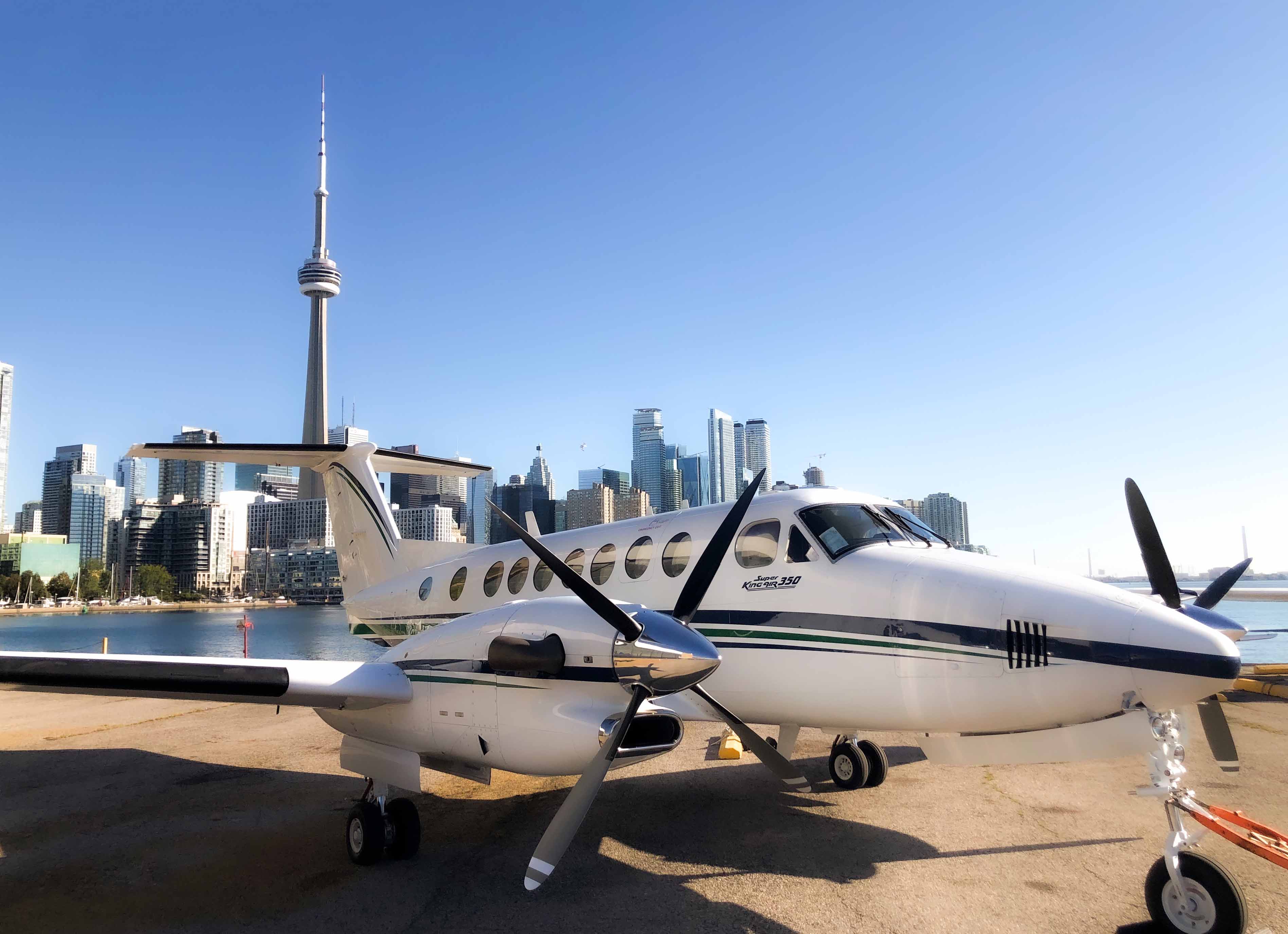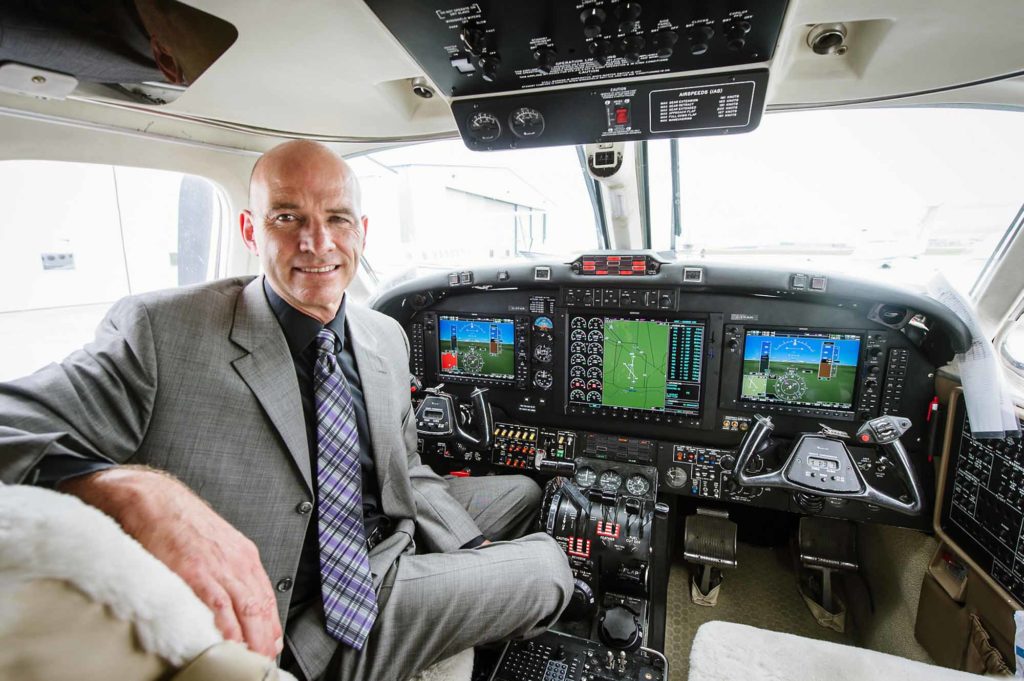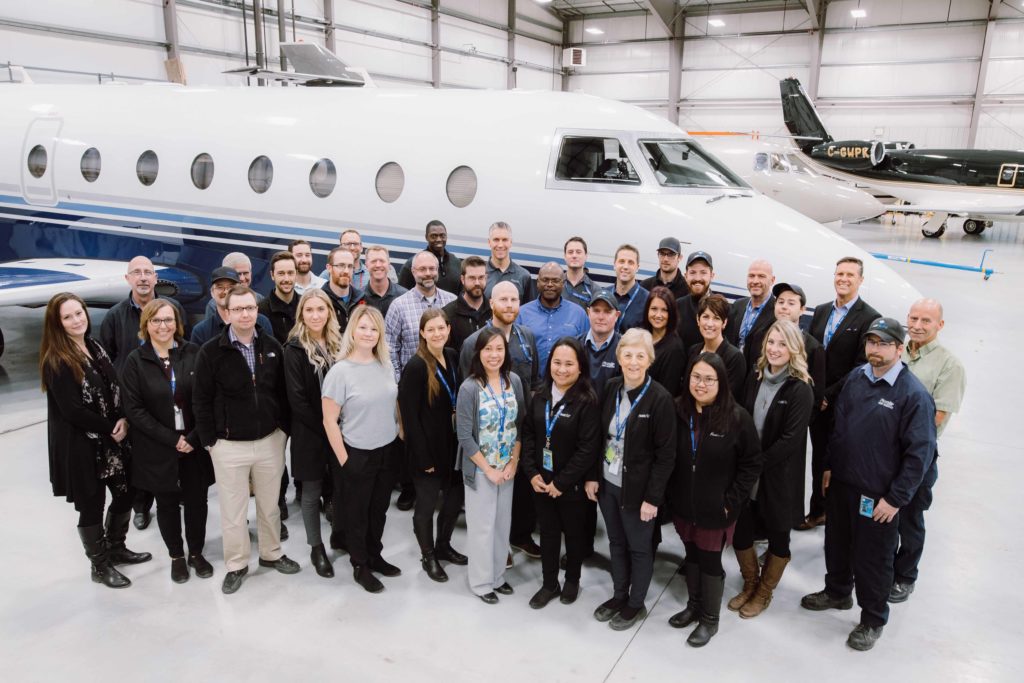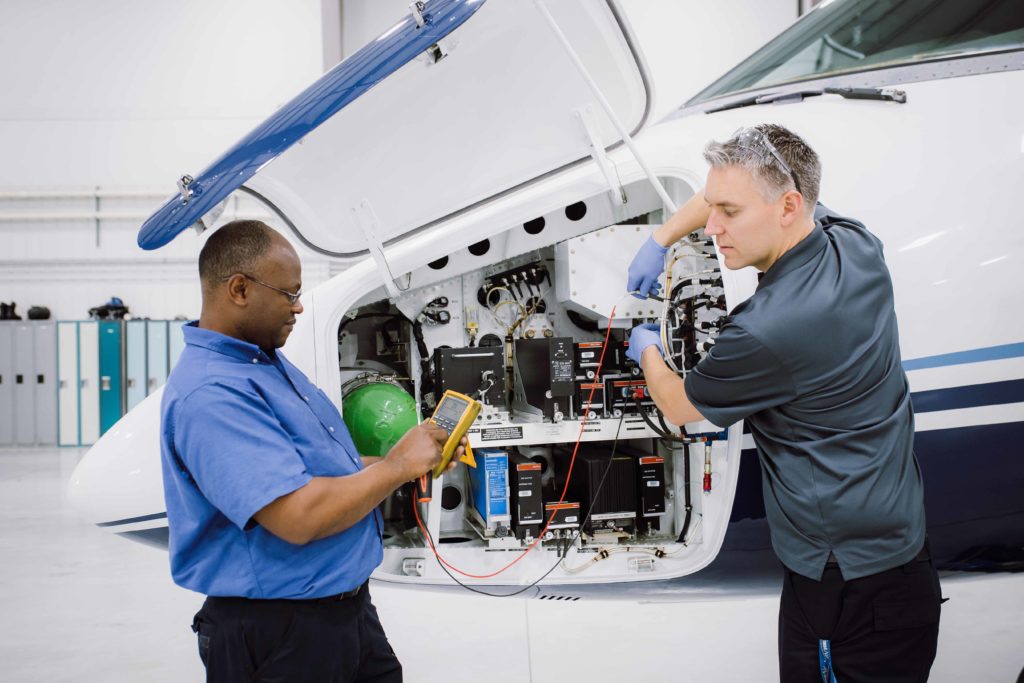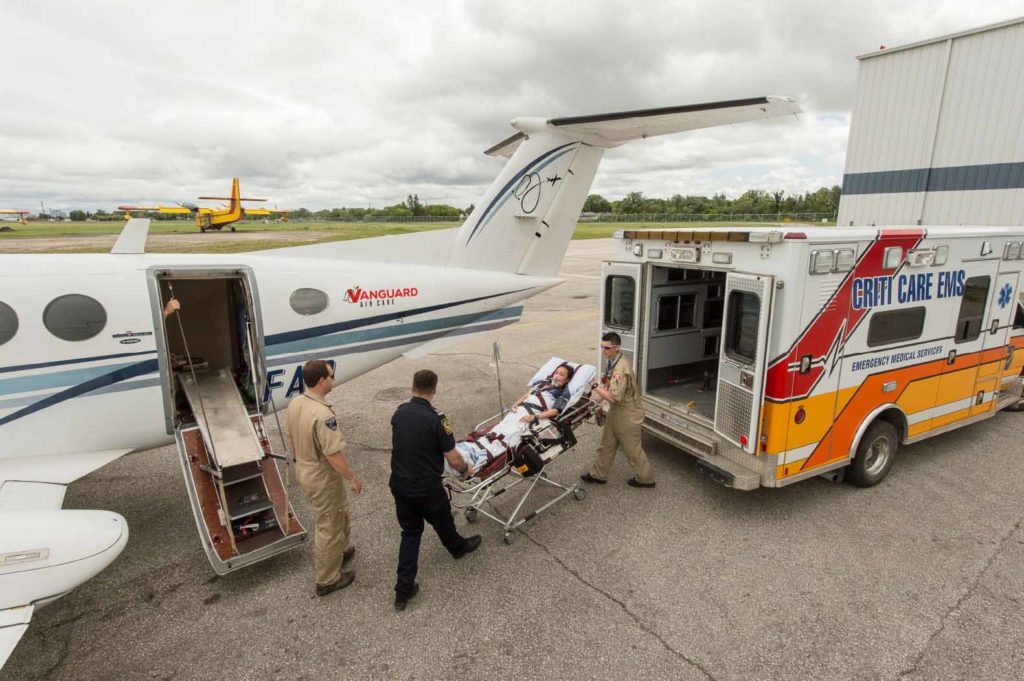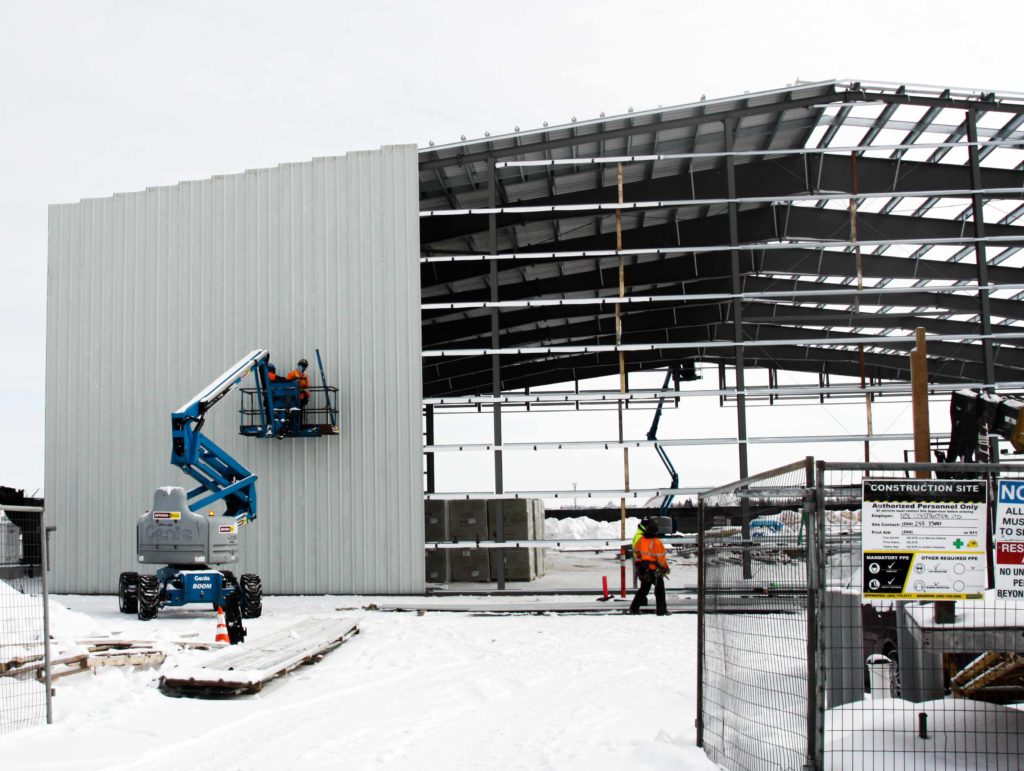Estimated reading time 13 minutes, 11 seconds.
Aviation is a cyclical business, and it pays to have a diverse operation to carry you through unforeseen challenges — such as a global pandemic, for example.
In March 2020, the appearance of Covid-19 caused aviation to grind to a halt. Seemingly overnight, flying ceased and planes were parked at airports around the world. In Winnipeg, Fast Air felt the pinch just like everyone else, but thanks to its diverse activities the company was among the first to rebound.
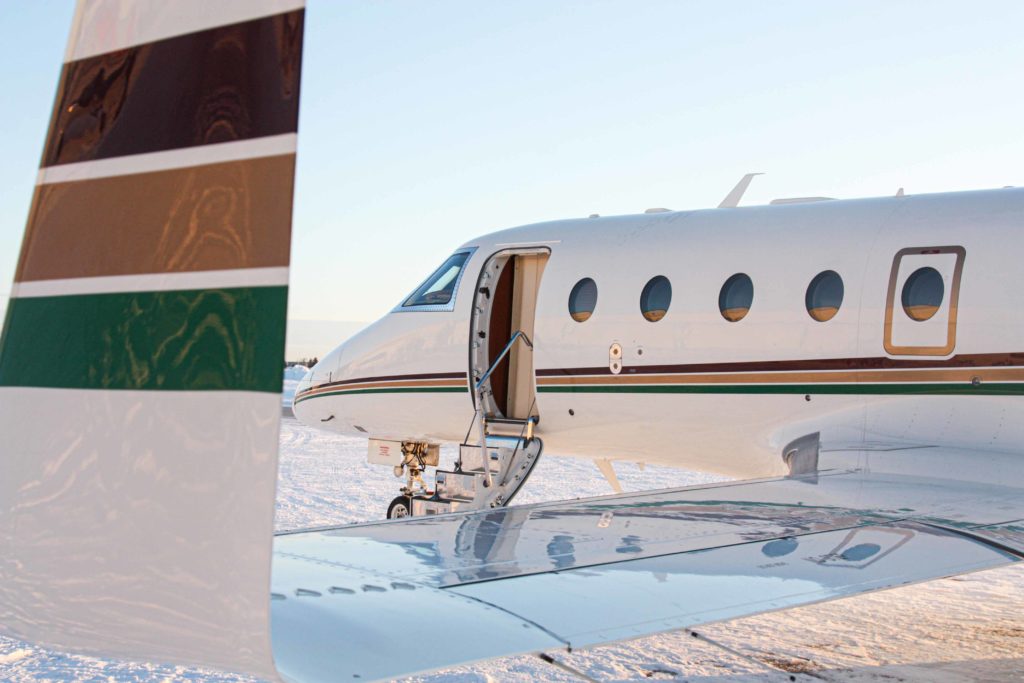
Founded in 1995 by entrepreneur and commercial pilot Dylan Fast, Fast Air continues to offer a full slate of aviation services from its Winnipeg headquarters: charter, aircraft management, maintenance, FBO services, and air ambulance. If one segment is languishing, the others are quite often busy. In the early days of the pandemic, Fast Air’s air ambulance and maintenance divisions were active, while charter and FBO were quite slow.
Gradually, as demand for travel returned, Fast Air’s charter department picked up. In fact, the company has added 10 aircraft to its fleet in the two years since the pandemic began, and overall annual flying hours have increased by roughly 30 to 40 percent in both the charter and medevac fleets.
Fast Air now operates 17 Beechcraft King Air turboprops (three 350 models and 14 B200 models) and eight business jets, ranging in size from a HondaJet to a Cessna Citation X.
“We’re seeing new entrants into the market community; clients that didn’t even consider using business aircraft before,” said Dan Rutherford, marketing and business development manager at Fast Air. “That’s from all the challenges the pandemic has brought, including limited travel, limited destinations, added screening, and health risks.”
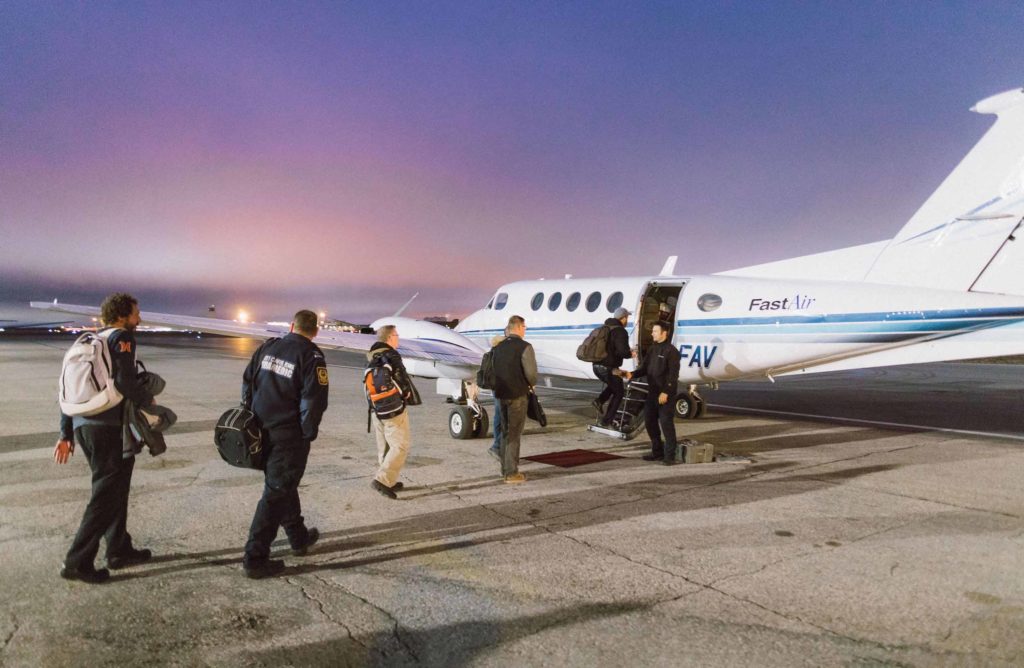
Rutherford added that one new client acquired an aircraft within three months of their first charter flight. “They are a Manitoba-headquartered company with clients across North America, and they don’t want to be in any location too long. They go directly to vital destinations and visit their key sites and are back in 48 hours. This suits their business model.”
As more clients discover the benefits of business travel, Fast Air is working hard to respond to the increased demand while still upholding its core philosophy of ‘better, not bigger.’
“That’s Dylan Fast’s mantra,” explained Rutherford. “It’s part of our company culture. The focus at Fast Air is on quality and not on growth. We believe quality drives growth, and that’s been our experience. Our aviation professionals aim to deliver a distinctive client experience every time.”
Expansion: East, West, and Central
The company’s approach is certainly working. During the pandemic, Fast Air expanded to 165 employees and added bases in two additional locations: Toronto and Abbotsford, British Columbia.
“Fast Air wants to diversify its geography,” said Rutherford. “We are very strong in central Canada, and we felt like growth in a couple of other markets would give us some stability.”

Dylan Fast, president and CEO of the
company, showing off the Garmin
G1000 cockpit. Ian McCausland/Fast
Air Photo
Members of the Fast Air team at the
company’s headquarters in Winnipeg.
Fast Air Photo
Fast Air is authorized to maintain,
repair, and overhaul Gulfstream,
Hawker, Challenger, King Air,
Westwind, Piper, and Cessna aircraft.
Fast Air Photo
Vanguard Air Care is Fast Air’s
medevac division, which has been
operating since 2003. Vanguard/Fast
Air Photo
Construction is underway on Fast Air’s
sixth hangar, located at its Winnipeg
base. Fast Air Photo
About eight months ago, the operator opened a new location in Toronto with a King Air 200 and then a 350 model, catering to the VIP turboprop segment.
“We had an opportunity to establish a base at Billy Bishop Toronto City Airport,” he said. “It’s been an exciting adventure. It’s a good opportunity because we entered the market in a segment not very well served. Being in the downtown core with the business community has worked well, and we fly to locations like New York, Boston, Montreal, Ottawa, and a variety of U.S. destinations.”
Meanwhile, Fast Air is also targeting British Columbia’s growing charter market, with plans to build a new FBO facility in Abbotsford, about an hour southeast of Vancouver.
“We’ve been working with Abbotsford airport for a few years now,” said Rutherford. “The plan is to have an operation like in Manitoba, with charters and aircraft management. To get our foot in the door, we purchased a hangar and have a business aircraft tenant there. We hope to have a King Air in service there sometime this year, similar to Toronto, and build a larger facility in mid-2022. We’ve had inquiries from large aircraft already.”
Originally, said Rutherford, Fast Air had proposed a strata-type operation, with owners invited to buy a fraction of the facility.
“That’s not off the table, but people haven’t seen much of that kind of ownership model. I think we’ll probably capitalize the project and then offer that if someone really wants to do it.”
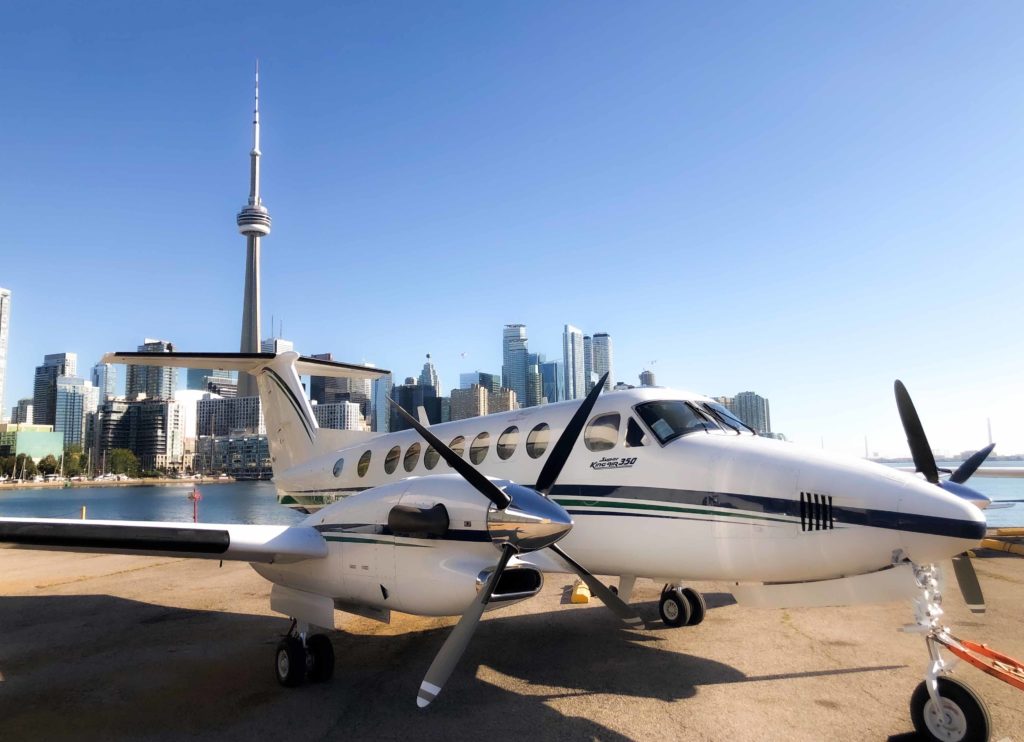
Finally, at home in Winnipeg, Fast Air is constructing a sixth hangar, a new 27,000-square-foot facility that will consolidate all maintenance activity. Rutherford said it will free up the other hangars for internal operations, especially aircraft management, where the company sees tremendous potential.
Balanced Growth
Turboprops have been busy during the pandemic, and Fast Air has undertaken a calculated expansion in order to meet that demand. But Rutherford said it’s been a balancing act, especially when it comes to the company’s human resources.
“Team members can feel the fatigue,” he said. “Growth has meant people have an additional work load, which normally would have been bearable — but then we have the extra work related to the pandemic on top of that.”
Rutherford knows all about that balancing act. He obtained his King Air type rating just over a year ago and flies about once a week, working around his business development duties.
One of the things he’s organizing is the revival of the King Air Summit, an annual event hosted by Fast Air and targeted to owners and operators of the type. The summit is a go for September 2022, reported Rutherford, noting that King Air fliers across Canada are anxious to reconnect.
“Operators would like to meet with supply chain reps — that’s become a big issue,” he said. “The objective is to network and problem solve. Everything from training pilots to parts are hard to find these days.”
Fast Air also hosts the Mid-Canada Biz Jet Show, an industry event for central Canada that incorporates seminars and networking opportunities. “We anticipate that some version of this vital event will emerge later in 2022, but we have to wait and see at this point,” said Rutherford.
Overall, he credits the company’s diversity as the reason it’s been able to survive — and indeed, thrive — during the Covid-19 pandemic. Fast Air is also committed to quality, as evidenced by its medevac division, Vanguard Air Care, recently adding one of Canada’s only private medical simulation training labs.
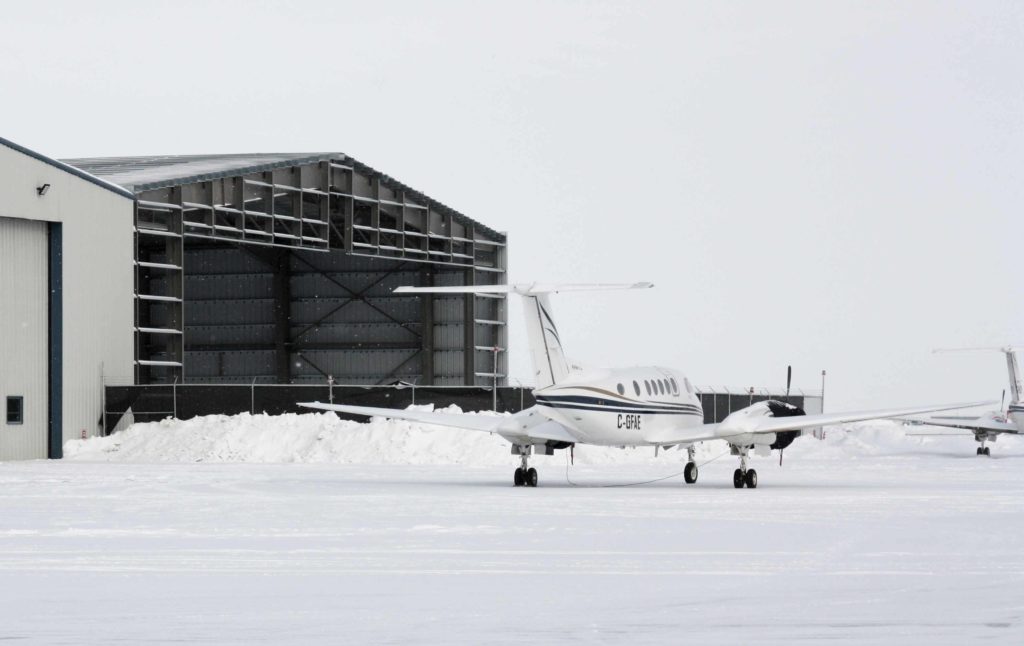
“We are fortunate because we have competitors in various segments, but no one does everything we do. We’re reaching new levels of capacity and we are very busy. Our numbers are above pre-pandemic numbers by a significant amount, and we have grown during the two years of the pandemic in terms of aircraft and staff.”
Green and Proud
As it looks to the future, Fast Air is very much driven to continue a “sustainability journey” that began in 2019, when it started working towards being a sustainable aviation company. This began by purchasing carbon offsets to compensate for its operations that year.
The move was prompted by Fast Air Jet Centre’s involvement as a member of World Fuel Network’s carbon-neutral initiative, but environmentally friendly operations remain a key priority for all company departments.
“Sustainability is our total focus now,” said Rutherford. “It’s back to the ‘better not bigger’ philosophy. In 2021, the operation continued its sustainability journey by committing to being run on a net-zero basis for its carbon footprint.”
To achieve this goal, Fast Air established a baseline using approved and audited carbon offsets combined with carbon reduction strategies. It also embraced a model called the Triple Bottom Line or the 3Ps: people, planet, and profitability.
“We embraced a holistic model that pays attention to all of those,” summarized Rutherford. “Over the next 10 years, what initiatives can we embrace that make life better for all our people? Then we have planet targets, like carbon offsets, and for two years we’ve been carbon neutral. Our operations, hangars, and vehicles are offset and we’re trying to move to electrification, and we’ve done other things like switching to LED hangar lighting to reduce our use of resources.”
In late March, Fast Air announced that it is the first aviation operator in Canada to achieve the National Air Transportation Association (NATA) sustainability certification.
Rutherford went on to explain the third P: “Profitability is about using your fiscal resources more wisely and looking at things more leanly, to invest in opportunities that give the company stability. A good example is our [Garmin] G1000 cockpit upgrades, or our fiscal reserves that meant we didn’t have to lay off staff when we first entered the pandemic.”

Fast Air is now in the second year of a 10-year sustainability plan, with the management team currently undergoing related training.
“We now call ourselves a sustainable aviation company,” concluded Rutherford. “Sustainability is front and center for us. I’ve been doing quite a bit of educating with our staff. There is an unfortunate shadow hanging over business aviation, that ‘flight shaming’ thing, that says private aircraft are wasteful.
“In fact, business aviation is the sector that drives a lot of the efficiency changes in aviation, including winglets, engine efficiencies, and flight profiles, for example. There is more to do, but we are on the right track in our industry.
“We want our people to feel proud about what they do.”
